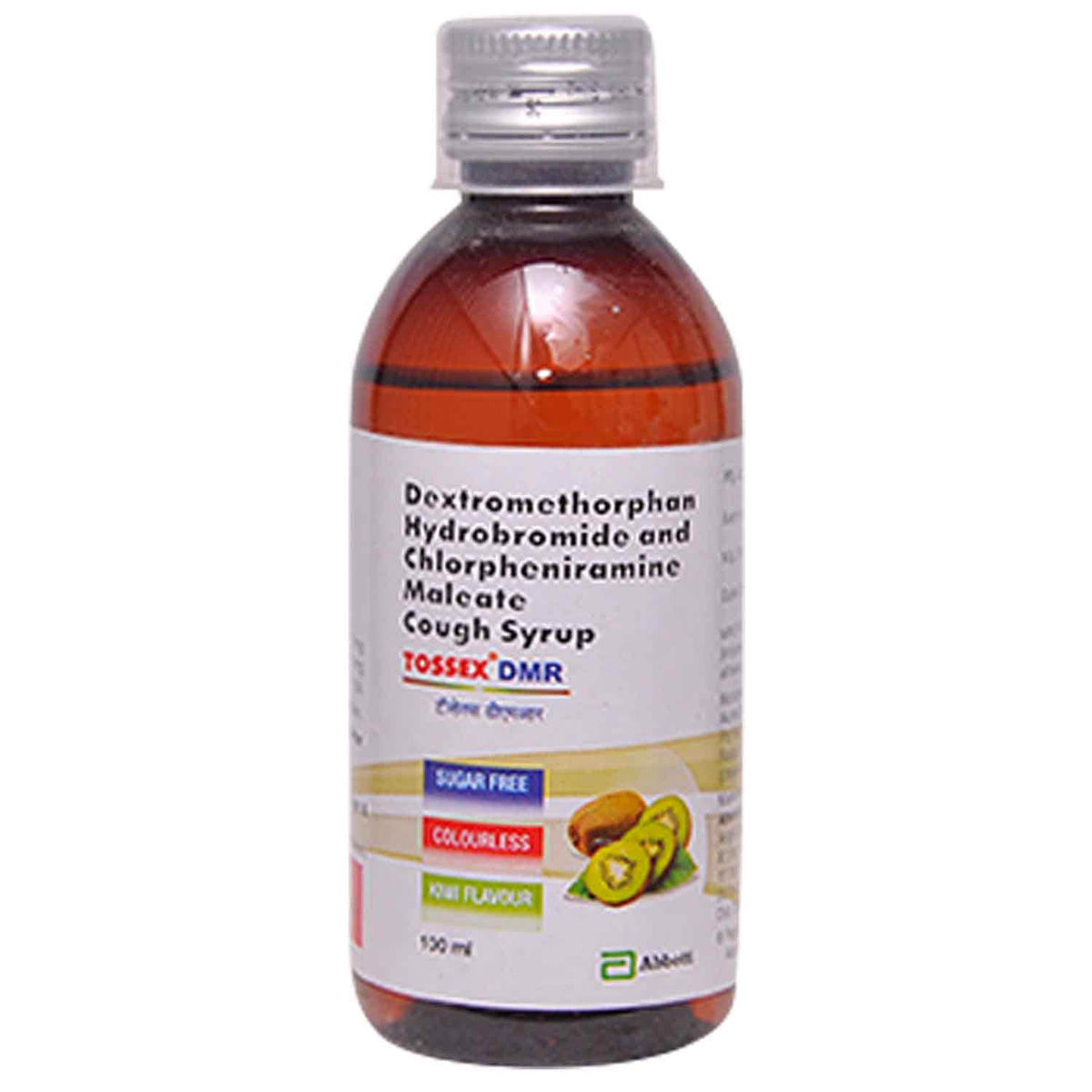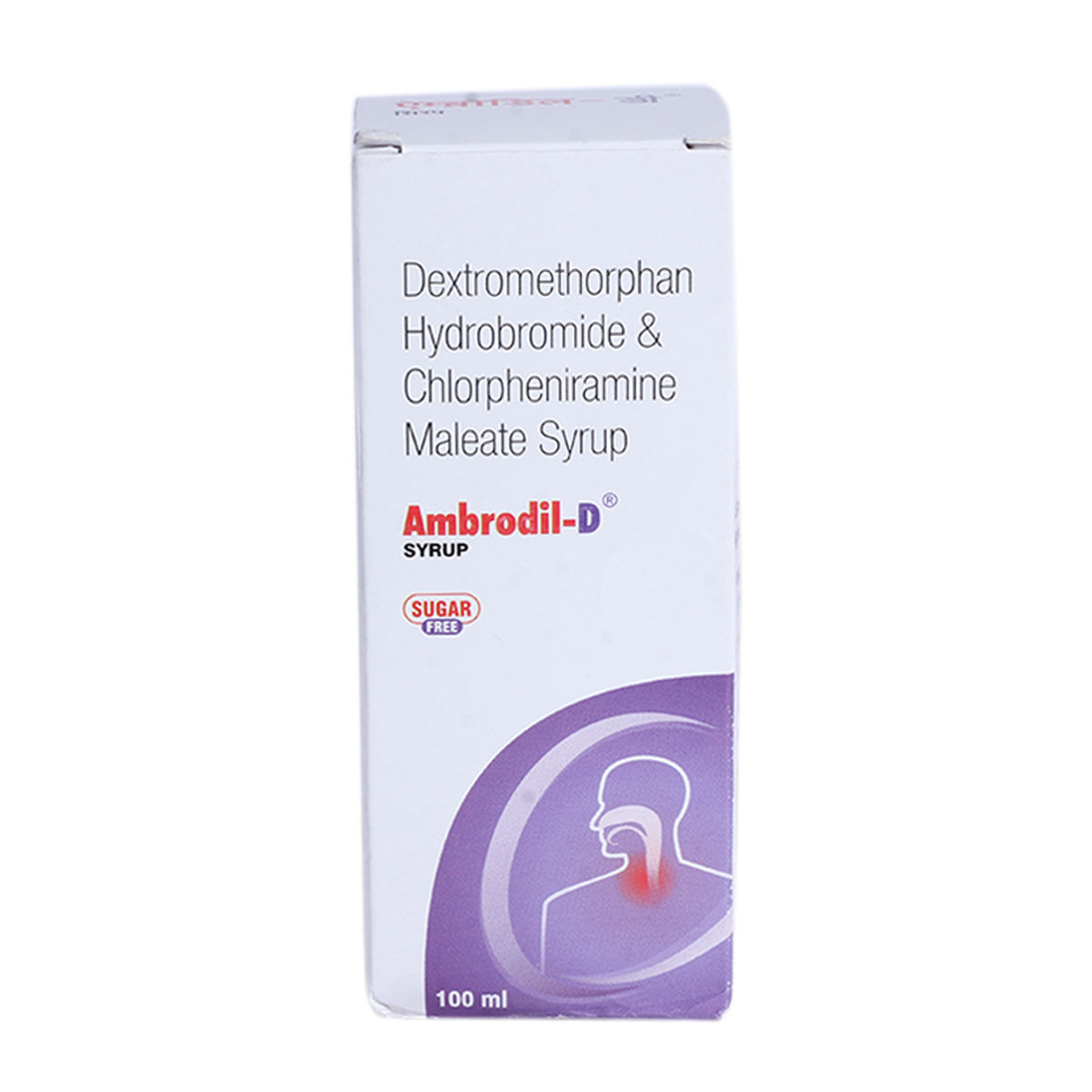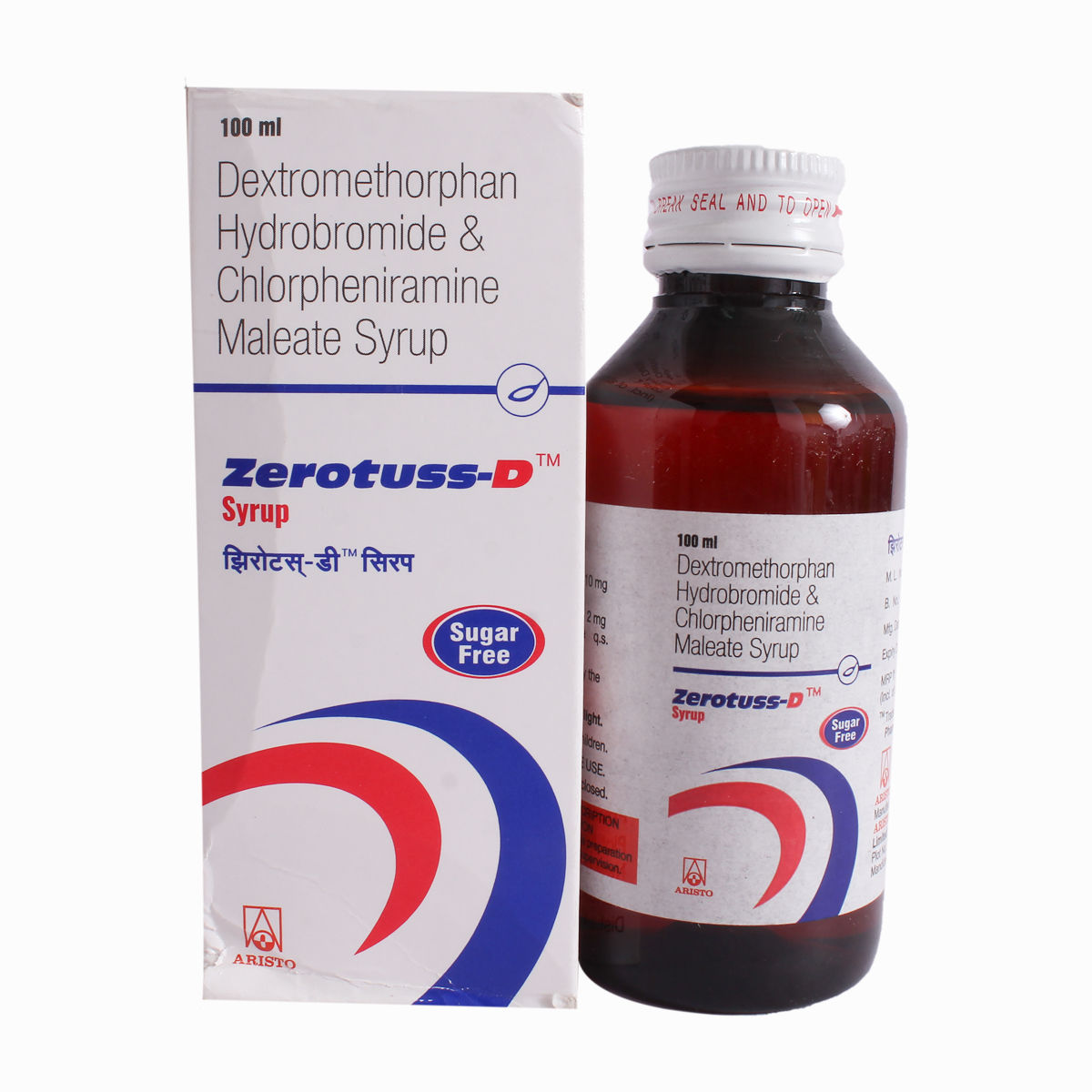Drygus Syrup 100 ml

₹65.7*
MRP ₹73
10% off
₹62.05*
MRP ₹73
15% CB
₹10.95 cashback(15%)
Free Delivery
With Circle membership
(Inclusive of all Taxes)
This offer price is valid on orders above ₹800. Apply coupon PHARMA10/PHARMA18 (excluding restricted items)
Know Your Delivery Time
Provide Delivery Location
Available Offers
 Prescription drug
Prescription drugWhats That

Secure Payment

India's Most Trusted Pharmacy

Genuine Products
Composition :
Manufacturer/Marketer :
Consume Type :
Return Policy :
Expires on or after :
About Drygus Syrup
Drygus Syrup is used to treat dry cough. Coughing (dry or productive) is the body’s way of clearing irritants (like allergens, mucus or smoke) from airways and preventing infection. There are two types of coughs, namely. Dry cough and chesty cough. A dry cough is tickly and doesn't produce any vicious or thick mucus, while a chesty cough (wet cough) means mucous or sputum is produced to help clear your airways.
Drygus Syrup is a combination of two drugs: Chlorpheniramine (antihistamine) and Dextromethorphan (cough suppressant). Chlorpheniramine belongs to the class of antihistamines or anti-allergic that work by blocking the action of histamine, a substance responsible for causing allergic reactions. It helps to provide relief from symptoms of allergy such as sneezing, running nose, watery eyes, itching, swelling, and congestion or stiffness. On the other hand, Dextromethorphan belongs to the class of cough suppressants that work by blocking the transmission of nerve signals from the cough centre in the brain to the muscles that produce cough. Thus, Drygus Syrup helps relieve overall cough, cold and allergic symptoms.
Take Drygus Syrup with or without food as advised by your doctor with the help of a measuring cup. Your doctor will recommend how often you take Drygus Syrup based on your medical condition. Some people may experience dry mouth, throat or nose, drowsiness, blurred vision, constipation, dizziness, restlessness or excitation. Most of these side effects of Drygus Syrup do not require medical attention and gradually resolve over time. However, if the side effects persist or worsen, please consult your doctor.
If you are allergic to Drygus Syrup or any other medicines, please tell your doctor. If you are pregnant or breastfeeding, it is advised to inform your doctor before using Drygus Syrup . Drygus Syrup is not recommended for children below 12 years of age. If you are about to undergo any medical tests or surgery, please inform your doctor that you are taking Drygus Syrup . Avoid using Drygus Syrup if you have taken medicines such as linezolid, phenelzine, selegiline, rasagiline, isocarboxazid, tranylcypromine and methylene blue injection in the past 14 days. Drink plenty of fluids while taking Drygus Syrup to loosen mucus. If you have glaucoma, urinary problems, enlarged prostate, phenylketonuria (a congenital disability that causes accumulation of amino acid, phenylalanine in the body), cough with mucus or cough caused by asthma, smoking, chronic bronchitis or emphysema (a lung condition causing shortness of breath), inform your doctor before taking Drygus Syrup .
Uses of Drygus Syrup
Directions for Use
Medicinal Benefits
Drygus Syrup is a combination of two drugs: Chlorpheniramine and Dextromethorphan, primarily used to treat dry cough. Chlorpheniramine belongs to the class of antihistamines (anti-allergic drugs) that works by blocking the action of histamine, a substance responsible for causing allergic reactions. It helps to provide relief from symptoms of allergy such as sneezing, running nose, watery eyes, itching, swelling and congestion or stiffness. Dextromethorphan belongs to the class of cough suppressants that work by blocking the transmission of nerve signals from the cough centre in the brain to the muscles that produce cough. Thus, it decreases the need to cough.
How Drygus Syrup Works
Storage
Side Effects of Drygus Syrup
- Dry mouth, throat or nose
- Drowsiness
- Dizziness
- Blurred vision
- Constipation
- Restlessness or excitation
What if I have taken an overdose of Drygus Syrup
Drug Warnings
If you are allergic to Drygus Syrup or any other medicines, please tell your doctor. If you are pregnant or breastfeeding, it is advised to inform your doctor before using Drygus Syrup . Drygus Syrup is not recommended for children below 12 years of age. If you are about to undergo any medical tests or surgery, please inform your doctor that you are taking Drygus Syrup . Avoid using Drygus Syrup if you have taken medicines such as linezolid, phenelzine, selegiline, rasagiline, isocarboxazid, tranylcypromine and methylene blue injection in the past 14 days. Drink plenty of fluids while taking Drygus Syrup to loosen mucus. If you have glaucoma, urinary problems, enlarged prostate, phenylketonuria (a birth defect that causes accumulation of amino acid, phenylalanine in the body), cough with mucus or cough caused by asthma, smoking, chronic bronchitis or emphysema (a lung condition causing shortness of breath), inform your doctor before taking Drygus Syrup .
Drug-Drug Interactions
Drug-Drug Interactions
Login/Sign Up
Co-administration of Pargyline and Drygus Syrup 100 ml can increase the risk of serotonin syndrome (A condition in which a chemical called serotonin builds up in your body).
How to manage the interaction:
Co-administration of Drygus Syrup 100 ml and Pargyline can lead to an interaction. However, if you experience any symptoms like confusion, hallucination, seizure, changes in blood pressure, increased heart rate, fever, excessive sweating, shivering or shaking, blurred vision, muscle stiffness, tremors, stomach cramps, nausea, vomiting, and diarrhea, consult a doctor immediately. Do not stop using any medications without a doctor's advice.
Co-administration of Drygus Syrup 100 ml and Selegiline may increase the risk of serotonin syndrome (a condition in which a chemical called serotonin builds up in your body).
How to manage the interaction:
Co-administration of Selegiline with Drygus Syrup 100 ml can possibly result in an interaction, but it can be taken if a doctor has advised it. If you notice any of these symptoms - confusion, hallucination, fits, increased heart rate, fever, excessive sweating, shivering, shaking, blurred vision, muscle spasm, stiffness, incoordination, stomach cramps, nausea, vomiting, or diarrhea - make sure to contact a doctor right away. Do not stop using any medications without talking to a doctor.
Taking Tranylcypromine with Drygus Syrup 100 ml can increase the risk of serotonin syndrome (a condition in which a chemical called serotonin increases in your body).
How to manage the interaction:
Taking Drygus Syrup 100 ml with Tranylcypromine is not recommended, but can be taken together if prescribed by a doctor. However, consult a doctor if you experience confusion, hallucination(seeing and hearing things that do not exist), fit blood pressure alteration, increased heart rate, fever, excessive sweating, shivering or shaking, blurred vision, pain in the muscles or stiffness, incoordination, stomach cramps, nausea, vomiting, and diarrhea. Do not discontinue any medications without consulting a doctor.
Taking Rasagiline with Drygus Syrup 100 ml can increase the risk of serotonin syndrome (A condition in which a chemical called serotonin increase in your body).
How to manage the interaction:
Taking Drygus Syrup 100 ml with Rasagiline is not recommended as it can possibly result in an interaction, it can be taken if a doctor has advised it. If you notice any of these symptoms like confusion, hallucination, fits, extreme changes in blood pressure, increased heart rate, fever, excessive sweating, shivering or shaking, blurred vision, muscle spasm or stiffness, shaking, incoordination, stomach cramps, nausea, vomiting, and diarrhea, consult a doctor. Do not discontinue any medications without consulting a doctor.
Co-administration of Isocarboxazid with Drygus Syrup 100 ml can increase the risk of serotonin syndrome (A condition in which a chemical called serotonin builds up in your body).
How to manage the interaction:
Taking Drygus Syrup 100 ml and Isocarboxazid can lead to an interaction. However, if you experience any symptoms like confusion, hallucination, seizure, changes in blood pressure, increased heart rate, fever, excessive sweating, shivering or shaking, blurred vision, muscle stiffness, tremors, stomach cramps, nausea, vomiting, and diarrhea, consult a doctor immediately. Do not stop using any medications without a doctor's advice.
Co-administration of Phenelzine and Drygus Syrup 100 ml can increase the risk of serotonin syndrome (A condition in which a chemical called serotonin builds up in your body).
How to manage the interaction:
Co-administration of Phenelzine and Drygus Syrup 100 ml can lead to an interaction. However, if you experience any symptoms like confusion, hallucination, seizure, changes in blood pressure, increased heart rate, fever, excessive sweating, shivering or shaking, blurred vision, muscle stiffness, tremors, stomach cramps, nausea, vomiting, and diarrhea, consult a doctor immediately. Do not stop using any medications without a doctor's advice.
Co-administration of Drygus Syrup 100 ml and Procarbazine may increase the risk of serotonin syndrome (a condition in which a chemical called serotonin builds up in your body).
How to manage the interaction:
Co-administration of Procarbazine with Drygus Syrup 100 ml can possibly result in an interaction, but it can be taken if a doctor has advised it. If you notice any of these symptoms - confusion, hallucination, seizure, increased heart rate, fever, excessive sweating, shivering, shaking, blurred vision, muscle spasm, stiffness, incoordination, stomach cramps, nausea, vomiting, or diarrhea - make sure to contact a doctor right away. Do not stop using any medications without talking to a doctor.
Taking Drygus Syrup 100 ml and Potassium chloride (in tablet or capsule form) together can increase the risk of stomach ulcers, bleeding, and gastrointestinal injury.
How to manage the interaction:
Taking Drygus Syrup 100 ml with Potassium chloride it not recommended as it can lead to an interaction, it can be taken if your doctor has prescribed it. However, if you experience any symptoms such as severe stomach pain, bloating, lightheadedness or dizziness, nausea, vomiting (especially with blood), decreased hunger, or dark, tarry stools, consult the doctor. Do not discontinue any medications without a doctor's advice.
Taking Drygus Syrup 100 ml and Potassium citrate (in tablet or capsule form) together can increase the risk of stomach ulcers, bleeding, and gastrointestinal injury.
How to manage the interaction:
Taking Drygus Syrup 100 ml with Potassium citrate is not recommended as it can lead to an interaction, it can be taken if prescribed by the doctor. However, if you experience any symptoms such as severe stomach pain, bloating, lightheadedness or dizziness, nausea, vomiting (especially with blood), decreased hunger, or dark, tarry stools, consult the doctor immediately. Do not discontinue any medications without a doctor's advice.
Co-administration of Drygus Syrup 100 ml and Paroxetine may increase the effects of Drygus Syrup 100 ml.
How to manage the interaction:
If you are supposed to use Drygus Syrup 100 ml and Paroxetine together, your doctor may adjust the dose to safely use both medications. However, if you experience dizziness, drowsiness, difficulty breathing, anxiety, restless feeling, confusion, nervousness, or diarrhea, contact a doctor. Do not discontinue the medications without consulting a doctor.
Drug-Food Interactions
Drug-Food Interactions
Login/Sign Up
Diet & Lifestyle Advise
Avoid dairy products such as milk as it may increase mucus production. Also, avoid processed or refined foods to have relief from cough. Instead replace baked foods, fried foods, white bread, white pasta, French fries, sugary desserts and chips with green leafy vegetables.
- Drink plenty of fluids to avoid dry throat while you have a cough and loosen mucus.
- Avoid citrus fruits as it may worsen the cough. Eat fruits rich in water content such as pears, watermelon, peaches and pineapples.
Habit Forming
Therapeutic Class
Drygus Syrup Substitute

Tossex DMR Syrup 100 ml
by Others
₹1.26per tabletAmbrodil-D Syrup 100 ml
by AYUR
₹0.95per tabletCofstop-CDX Syrup 100 ml
by Others
₹0.68per tabletTixylix DX Dry Cough Syrup 100 ml
by Others
₹0.94per tabletSoventus DX Syrup 100 ml
by Others
₹0.97per tablet
Product Substitutes
Alcohol
Unsafe
Avoid consumption of alcohol with Drygus Syrup as it may increase drowsiness. Please consult a doctor before consuming alcohol with Drygus Syrup .
Pregnancy
Caution
The safety of Drygus Syrup in pregnant women is unknown. Therefore, it is given to pregnant women only if the doctor thinks benefits outweigh risks.
Breast Feeding
Caution
It is unknown whether Drygus Syrup is excreted in human milk. Drygus Syrup is given to breastfeeding mothers only if the doctor thinks benefits are greater than risks.
Driving
Caution
Drygus Syrup may cause dizziness or drowsiness in some people. Therefore, drive only if you are alert after taking Drygus Syrup .
Liver
Caution
Take Drygus Syrup with caution, especially if you have a history of Liver diseases/conditions. The dose may be adjusted by your doctor as required.
Kidney
Safe if prescribed
If you have any concerns regarding the use of Drygus Syrup in patients with Kidney problems, please consult a doctor.
Children
Caution
Drygus Syrup is not recommended for children below 6 years of age. However, please consult a doctor before using Drygus Syrup in children.
FAQs
Country of origin
Manufacturer/Marketer address
Disclaimer
Author Details
We provide you with authentic, trustworthy and relevant information

















